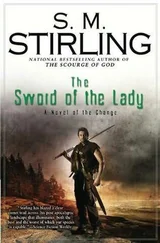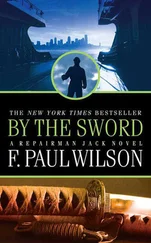Paul Christopher - The Sword of the Templars
Здесь есть возможность читать онлайн «Paul Christopher - The Sword of the Templars» весь текст электронной книги совершенно бесплатно (целиком полную версию без сокращений). В некоторых случаях можно слушать аудио, скачать через торрент в формате fb2 и присутствует краткое содержание. Жанр: Триллер, на английском языке. Описание произведения, (предисловие) а так же отзывы посетителей доступны на портале библиотеки ЛибКат.
- Название:The Sword of the Templars
- Автор:
- Жанр:
- Год:неизвестен
- ISBN:нет данных
- Рейтинг книги:3 / 5. Голосов: 1
-
Избранное:Добавить в избранное
- Отзывы:
-
Ваша оценка:
- 60
- 1
- 2
- 3
- 4
- 5
The Sword of the Templars: краткое содержание, описание и аннотация
Предлагаем к чтению аннотацию, описание, краткое содержание или предисловие (зависит от того, что написал сам автор книги «The Sword of the Templars»). Если вы не нашли необходимую информацию о книге — напишите в комментариях, мы постараемся отыскать её.
The Sword of the Templars — читать онлайн бесплатно полную книгу (весь текст) целиком
Ниже представлен текст книги, разбитый по страницам. Система сохранения места последней прочитанной страницы, позволяет с удобством читать онлайн бесплатно книгу «The Sword of the Templars», без необходимости каждый раз заново искать на чём Вы остановились. Поставьте закладку, и сможете в любой момент перейти на страницу, на которой закончили чтение.
Интервал:
Закладка:
He was tall, athletically slim, and darkly handsome. His face was long and sharp-jawed, his hair black, sweeping back in a widow’s peak. He had a long aristocratic nose, deep-set piercing eyes and a full mouth with lips that were down-drawn and just a little too feminine for such high cheekbones. There was something faintly reminiscent of the vampire about him that was simultaneously both attractive and repellent.
There was no classic family portrait; no wife, no children. One photograph showed Axel Kellerman in hunting clothes with a shotgun in his hands and an elegant liver-ticked German gun dog at his side. Behind him, slightly out of focus, was the building in which they now stood.
“He’s written his father out of the family history,” commented Holliday.
“Schwarzenegger did it-why not Axel Kellerman?” Peggy responded.
They left the room and crossed in front of a wide, curving staircase that led up to the second floor.
“I don’t believe it,” said Holliday, turning back toward the main hallway. He folded up the brochure and slid it into the side pocket of his jacket. “From everything I read on the Net he sounds like his old man reincarnated: same political convictions, same military aspirations. I would have expected a place like this to be a shrine.”
“I guess he figures you can’t have a Nazi past and sell farm machinery at the same time,” said Peggy as they stepped out into the sunlight again. “Your basic ruthless German efficiency.”
“I still don’t believe it,” repeated Holliday. They walked back down the path toward the parking lot. “It’s a cover-up. The whole place is a stage set. That’s not the real Axel Kellerman. He’s got a Batcave somewhere, I guarantee it.”
“I wonder where?” Peggy said. Holliday shrugged. He took out the keys and beeped open the car doors.
“I don’t have the faintest idea,” said Holliday. They climbed into the Peugeot. Peggy did up her seatbelt and smiled.
“Time for me to show my skills,” she said.
The Gaststдtte Barin-Bar was an old-fashioned raths keller, or basement bar, in an older building next to the Friedrichshafen railway station and only a short block from the waterfront. Peggy had discovered the place after a brief conversation with the desk clerk at their hotel and a fat tip to an elderly and gloomy-looking baggage handler at the train station.
The cavernous old restaurant and bar was dimly lit, wood-paneled, and decorated with the mounted heads of stuffed game animals, mostly toothy, glassy-eyed wild boars and blank-faced deer with enormous racks of antlers. There was a pair of bearded mountain goats with curling horns at the far end of the room, and the immense, dusty, and snarling brown she-bear that gave the restaurant its name looked angrily out from over the bar. Holliday smiled; he’d be angry, too, if someone mounted his head over a basement bar. The whole place smelled of beer, cooked cabbage, and frying meat.
It was the middle of the afternoon, and the raths keller was almost empty. A family of Japanese tourists was sitting at a table close to the cellar stairs working their way through plates of fried potatoes and brat wurst, whispering to each other and surreptitiously taking photographs with a shiny little digital camera. A fat man with white hair was crouched at the dimly lit bar, his thick fingers wrapped possessively around a large mug of beer.
“Nice place,” commented Holliday as they found a table and sat down. “You sure know how to pick ’em, Peg.”
“You travel around as much as I do you find out the best place for anything-guns, crooks, hookers, information most of all-is at the bar that’s closest to the local train station. Where the old geezers hang out and drink. Tunbridge Wells to Timbuktu, it’s always the same.”
“There’s a train station in Timbuktu?” Holliday teased.
Peggy sighed. “You know what I mean,” she said. “If you want information on our friend Kellerman, this is the place to get it.”
A waitress with teased blond hair dressed in a folksy dirndl came out of the kitchen, spotted Holliday and Peggy, and came over to their table. She didn’t even hesitate, speaking English automatically.
“Can I get you anything today?” she said pleasantly.
“Two Augustiner Brдu,” responded Peggy.
“Anything else, madam?”
“Rudolph Drabeck?” Peggy asked. It was the name given to her by the old baggage man at the station.
“What do you want with Rudy?” the waitress asked cautiously.
Peggy took out a rust-colored fifty euro note and laid it on the table.
“Local color,” said Peggy.
“Was?” asked the waitress, frowning.
“Information only,” explained Peggy.
The waitress gave them an appraising look, then turned and went to the bar. She said something to the man hunched over his beer. The man turned and looked at Holliday and Peggy. Peggy nodded and picked up the fifty euro note, waving it.
The white-haired old man picked up his beer mug and crossed the room to their table. A few feet away the Japanese family shrank away from him as he passed. Reaching their table, he took a long pull from his beer mug and waited, his bleary eyes fixed on the money in Peggy’s hand.
“Ja?” he asked. His voice was scratchy and hoarse, thick with too much booze for too many years.
“Sprechen Sie Englisch?”
“Sure, of course,” said the man, weaving a little. He made a little snorting sound. “Doesn’t everybody now? I have Russian, too, a little. Italian, some.” He shrugged.
“Why don’t you sit down, Herr Drabeck?” Holliday offered.
“Herr Drabeck was my Scheisskopf of a father, the schoolteacher of rotznasigen little children. Call me Rudy,” the old man said sourly. “Everyone else does.” He shrugged again and sat down.
Holliday studied him briefly. He was short and fat with an untrimmed, gray beard shot through here and there with streaks of black. His hair was unkempt and unwashed, thinning back to the middle of his pink skull. His face was round, the cheeks pouched and sagging, the pale blue eyes vague behind plastic-framed glasses.
His bulbous nose was broken with booze veins, and he had the flushed, ruddy complexion of someone with uncontrolled high blood pressure. He wore a wrinkled old brown suit, and he’d obviously been wearing it too long. His white shirt had been washed a thousand times, and the collar was permanently gray. At close range he smelled of cigarettes and fried onions. He appeared to be in his eighties, which would have made him twenty or so during the war.
The waitress appeared again, bringing Peggy and Holliday their beer in tall pilsner glasses.
“Give him one of these, as well,” said Peggy, lifting her beer glass and nodding toward the old man.
“Nein,” said Drabeck quickly, speaking to the waitress. “Kulmbacher Eisbock. Ein Masskrug, bitte, und ein Betonbuddel Steinhдger.”
“Pardon?” Peggy said. Her high school German had been exhausted back at “Sprechen Sie Englisch.”
“Ein Masskrug is what you call a liter,” explained the waitress, grinning. “Steinhдger is a kind of gin. He wishes a whole bottle.”
“A whole bottle?”
“That is what he says,” replied the waitress.
“Und ein Strammer Max,” added the old man, blinking earnestly.
Peggy turned to the waitress.
“He is asking now for a sandwich. Leberkдse-liver cheese, I think you say, with a fried egg on top, sun part up and toasted in the pan.”
Peggy stared at Drabeck.
He shrugged again and smiled. His teeth were small, yellow, and uneven.
“All right,” said Peggy. The waitress went away. She turned back to Drabeck. “You’ve lived in Friedrichshafen for a long time?”
The old man stared at the fifty euro note in front of Peggy on the table. She slid it across to him. He grabbed it and slipped it quickly into the sagging pocket of his jacket. He drained the last of the beer from his mug and set it aside, placing his hands flat on the table. The fingers were long and surprisingly small and delicate. Veins twisted across the skin like worms underneath the wrinkled flesh. The nails were broken and cracked, dark with dirt, thick and yellow.
Читать дальшеИнтервал:
Закладка:
Похожие книги на «The Sword of the Templars»
Представляем Вашему вниманию похожие книги на «The Sword of the Templars» списком для выбора. Мы отобрали схожую по названию и смыслу литературу в надежде предоставить читателям больше вариантов отыскать новые, интересные, ещё непрочитанные произведения.
Обсуждение, отзывы о книге «The Sword of the Templars» и просто собственные мнения читателей. Оставьте ваши комментарии, напишите, что Вы думаете о произведении, его смысле или главных героях. Укажите что конкретно понравилось, а что нет, и почему Вы так считаете.











